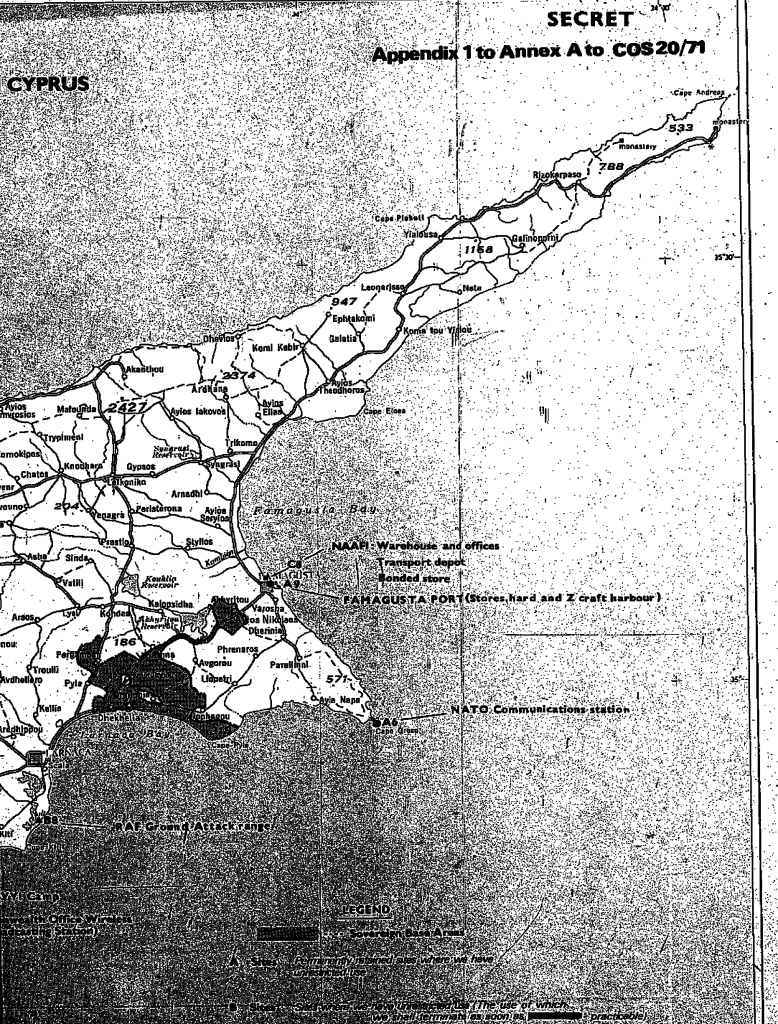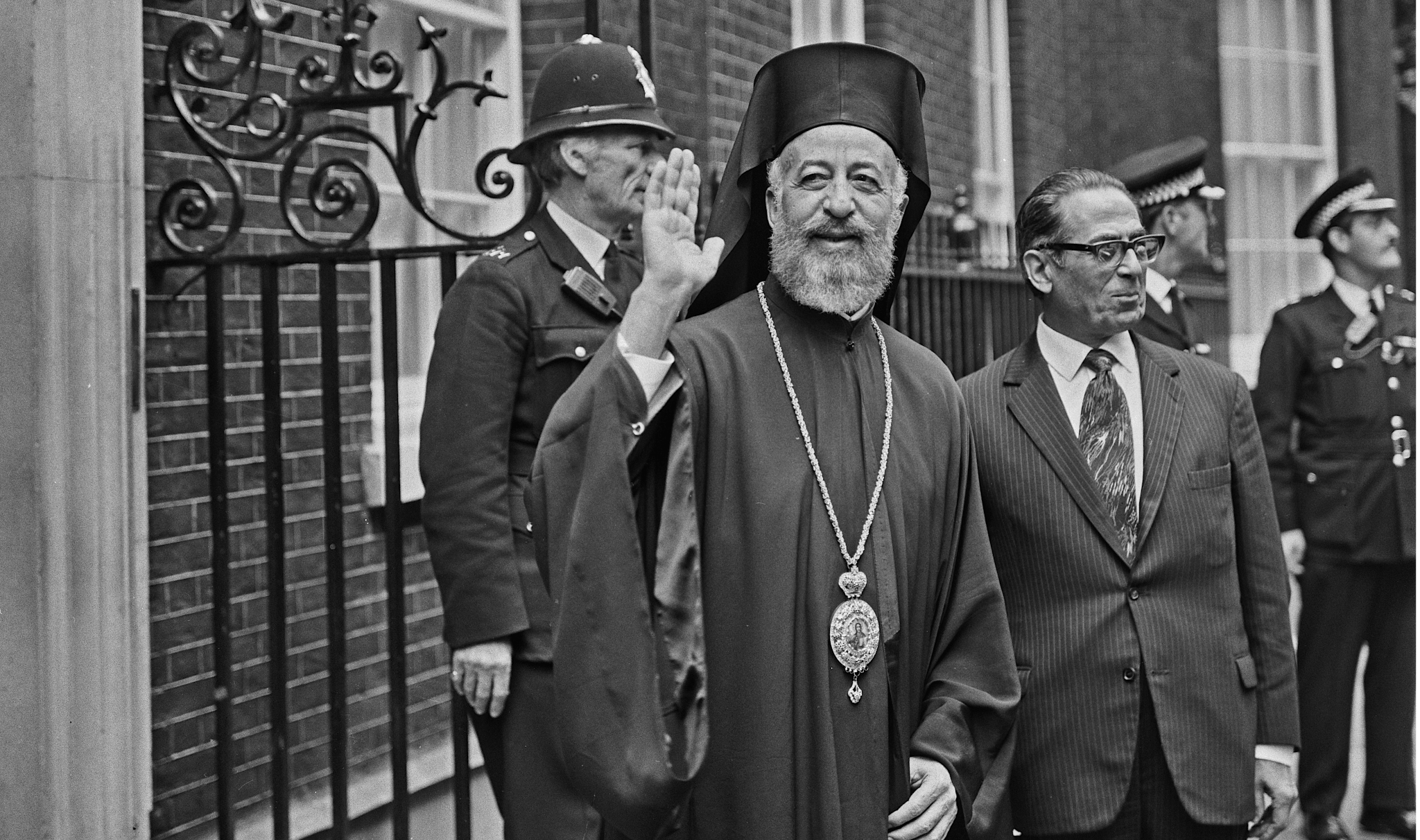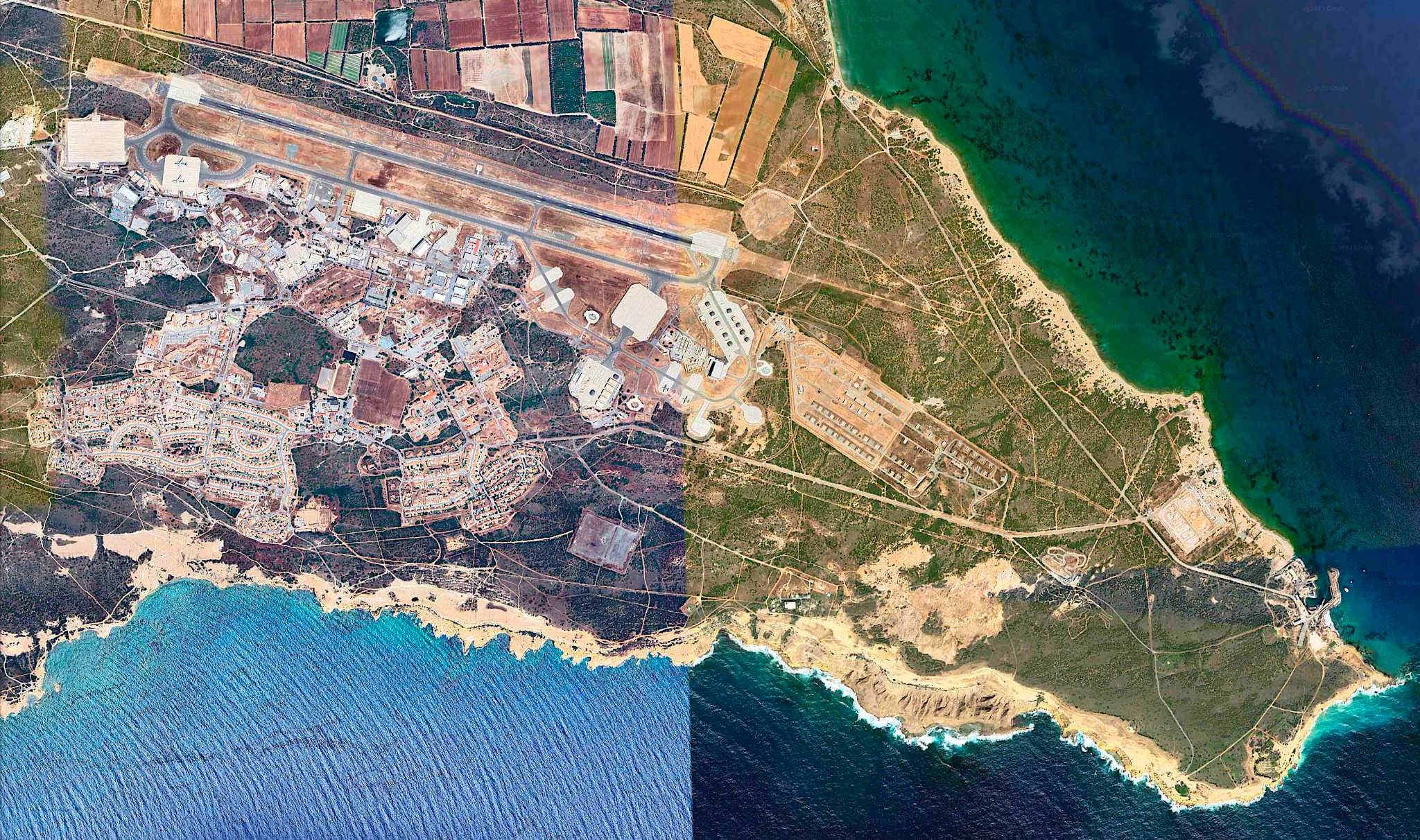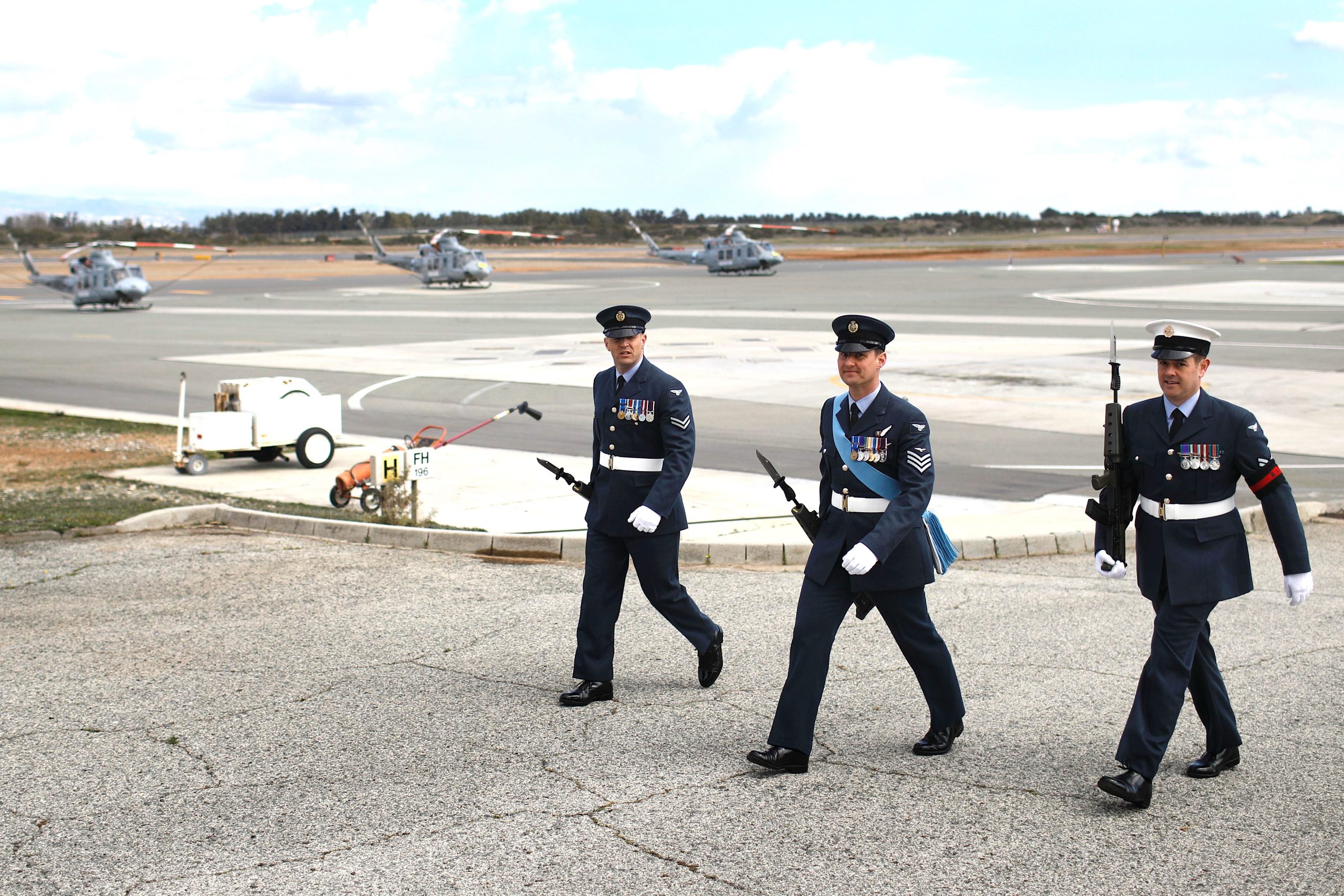The UK used its bases in Cyprus, which it retained after the island achieved independence in 1960, as key NATO assets despite Cyprus’s declared non-alignment between East and West, it can be revealed.
NATO was established in 1949 ostensibly as a “defensive” Western military alliance against the “threat” posed by the Soviet Union. Greece and Turkey were added as members during its first expansion in 1952, but neighbouring Cyprus never joined.
The first president of independent Cyprus, Archbishop Makarios, was a prominent figure in the Non-Aligned Movement (NAM), which refused to take sides in the Cold War.
President Makarios attended the first summit of the NAM in Belgrade, Yugoslavia, in 1961, making Cyprus one of its 25 founding members. He would serve as president until 1974 when he was overthrown in a coup d’état ordered by Greece’s military junta.
A British Ministry of Defence study, prepared three years before the coup, in 1971, was marked “top secret” and “UK eyes only”. Titled, “the importance to the UK of the Sovereign Base Areas in Cyprus”, it gives a window into the real reason the British sought to maintain two de facto colonies on Cyprus after independence.
It shows that these British territories, named Sovereign Bases Areas (SBAs), served as key NATO intelligence and military assets in the Middle East and North Africa throughout Makarios’s time as president.
‘Not consistent with the non-aligned position’
“The continuation of the UK position in Cyprus,” the report noted, “is of great strategic importance to [NATO].”
Despite this, the report continued, “association with [NATO] is clearly not consistent with the non-aligned posture adopted by Cyprus.”
The UK knew how controversial this would be if made public, noting “it is important to avoid drawing attention to the NATO implications of military activities which affect the Republic of Cyprus.”
The report went further, stating that the UK needed to hide the true role of its Cyprus bases. It noted that only if the UK “is circumspect in the use of its bases for NATO purposes” would there be “good reason to suppose that the UK will be able to use its defence facilities in Cyprus without serious interference.”
The British planners warned of “any more overt or increased use” of the UK bases for NATO purposes, “such as the setting up of a NATO Headquarters or the assumption by a UK Commander of a NATO appointment”.
But the nature of the British bases led the planners to conclude that Makarios would not make it an issue. “Since the main facilities are on sovereign British territory, President Makarios is able to avoid any direct responsibility for their use,” it noted.
“He is unlikely to take any extreme anti-British position, choosing rather not to notice what he cannot publicly approve.”

‘Cyprus enhances the NATO position’
The value of Cyprus to NATO’s capabilities in the Middle East and North Africa was not in doubt.
The report noted that “the UK military presence in Cyprus enhances the NATO position in the Eastern Mediterranean particularly by…providing intelligence gathering and surveillance facilities which contribute to US and NATO assessment agencies.”
A map of UK sites and installations in Cyprus in the report identified Cape Greco, a headland east of the UK’s Eastern SBA, Dhekelia, as a “NATO Communications station”.
This station was in Cyprus proper, outside of the SBAs and other “retained sites”. It is likely the government of Cyprus did not know about it.
“Cyprus provides a most valuable facility to maintain surveillance coverage of the Eastern Mediterranean,” the report continued. “Many of these operations are on behalf of NATO, others are for national or for US/UK purposes, and by their very nature can be carried out from Cyprus without offending Cypriot sensitivities.”
“There are great advantages in being able to carry out covert surveillance from UK sovereign territory.”
Thus “Cypriot sensitivities” were not offended since these activities could be undertaken from UK land. “There are great advantages in being able to carry out covert surveillance from UK sovereign territory,” the report noted.
The military aircraft positioned at RAF Akrotiri, the huge air base on the SBAs which remains a key hub for UK operations, were also a boon for NATO.
“In particular the ground radars and lightning interceptor fighters of the air defence system make a valuable contribution to NATO,” it continued. “The radars are linked to the NATO network thereby effectively extending NATO’s early warning coverage and interception capability.”
They comprised, the report noted, “a valuable extension of NATO’s air defence system”.
‘Nuclear force’
The report shows that two Vulcan bomber squadrons, referred to as a “nuclear force”, were deployed at RAF Akrotiri.
“The targets for the Cyprus-based Vulcans are coordinated with the US and NATO through CINCSOUTH,” it notes, referring to the commander-in-chief of NATO’s Allied Forces Southern Europe.
The Vulcans make “a valuable contribution to NATO on the Southern Flank”, the report concluded, referring to the Eastern Mediterranean region. “Furthermore the force can make a contribution to NATO even during peacetime by carrying out Maritime reconnaissance.”
“The targets for the Cyprus-based Vulcans are coordinated with the US and NATO.”
Gaming out where the UK could deploy its military assets should it lose Akrotiri, the study noted that one option was Malta, the tiny island just south of Sicily which achieved independence from Britain in 1964.
But, stated the report, “the Malta Government might be unwilling to accept the permanent stationing of a nuclear force on the island, especially after the lapse of the present Defence Agreement in 1974. Finally the aircraft would be up to 1,000 miles further from their targets.”
This would indicate the nuclear target was the Soviet Union.
Deterring Russia, protecting oil supplies
The British presence on Cyprus also restrained Soviet influence in the region, helping “to reduce the freedom of action of Russian maritime and air forces”, the report noted.
“The removal of the UK military presence from Cyprus, currently the declared aim of the local Communist Party, would leave a vacuum in an area which is of vital concern to NATO, and would be of considerable advantage to the Warsaw Pact powers.”
It continued: “Subsequent penetration would be a most valuable military and political prize for the Russians, the psychological effect of which would greatly enhance their prestige and influence in the Arab countries.”
But it wasn’t just Cold War strategy that made the SBAs attractive to the British. The report also observed how the British military presence in the Eastern Mediterranean provided “for the protection of her trading and financial interests and in particular her oil supplies”.
Cyprus stayed a member of the Non-Aligned Movement until 2004 when it was required to leave upon joining the EU. But it remains the only EU country that is neither a member of NATO or its affiliated Partnership for Peace programme.




